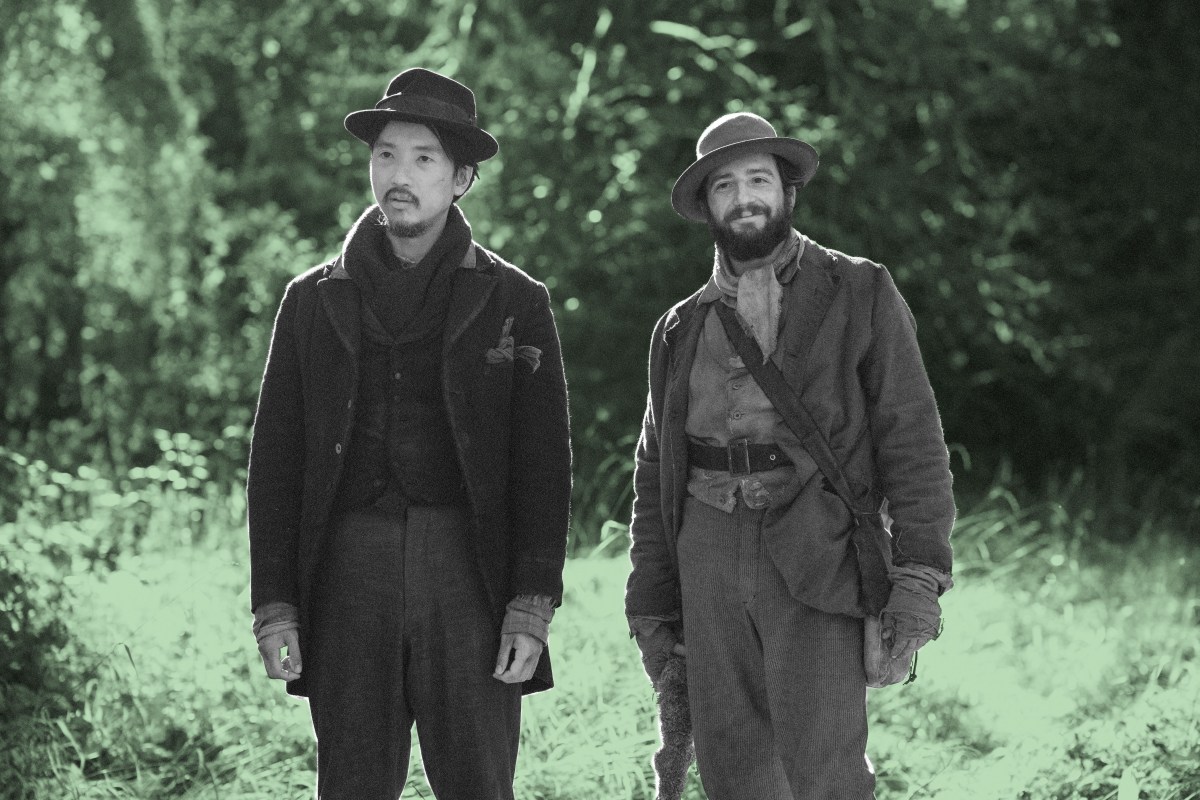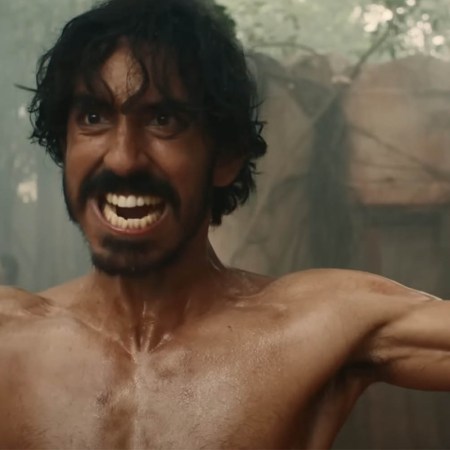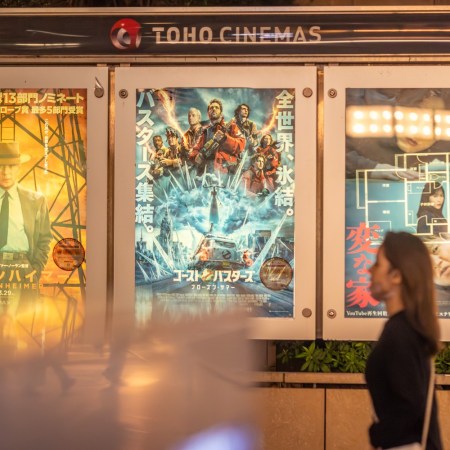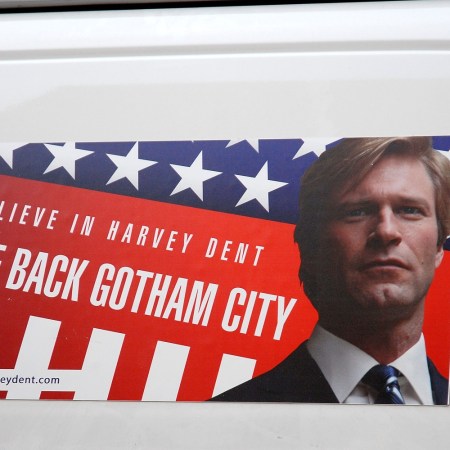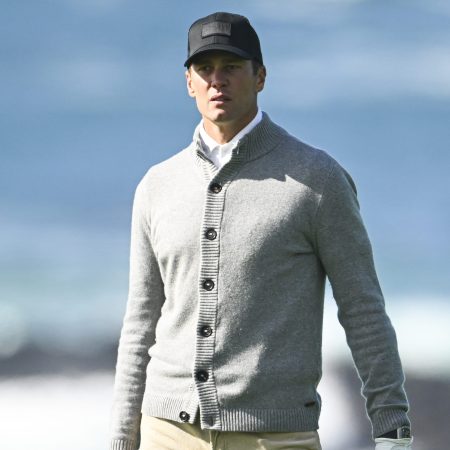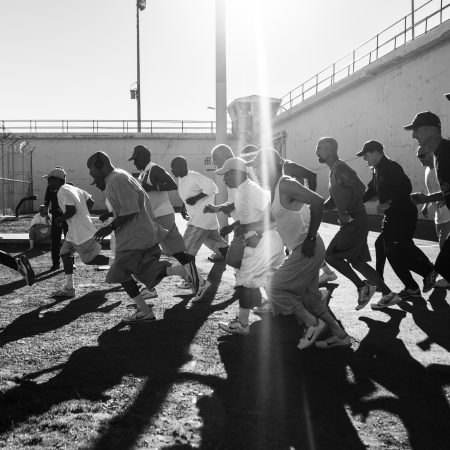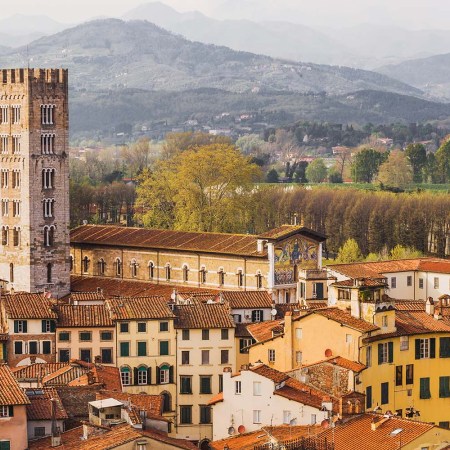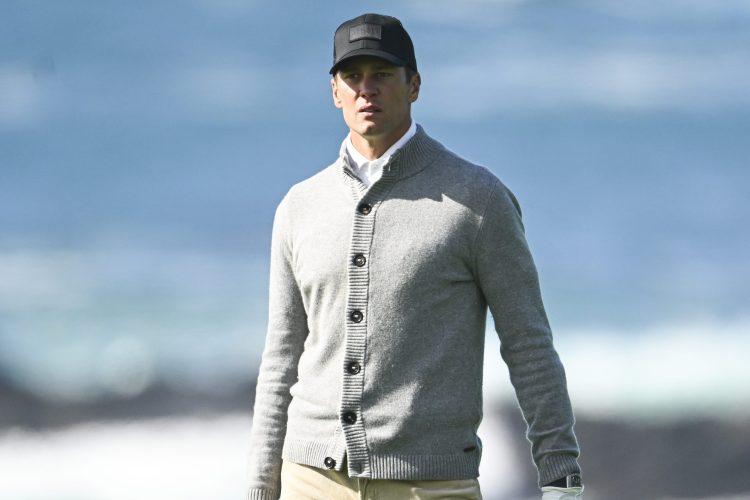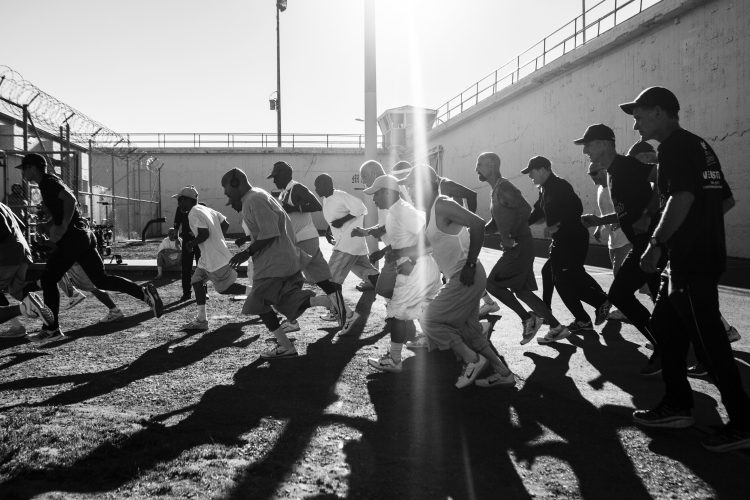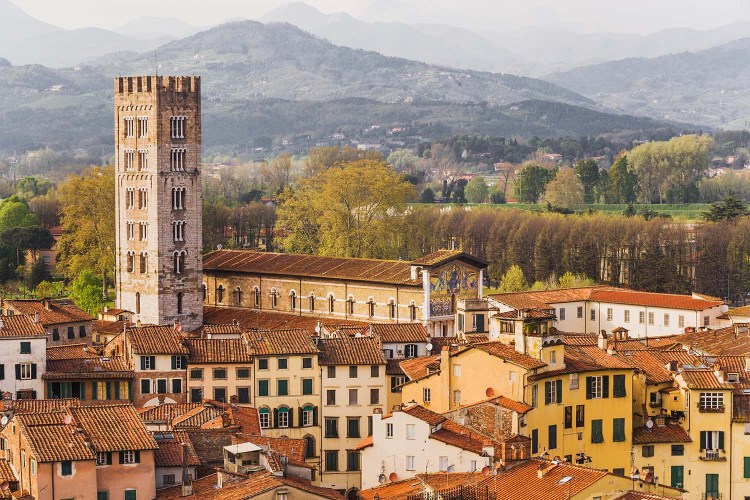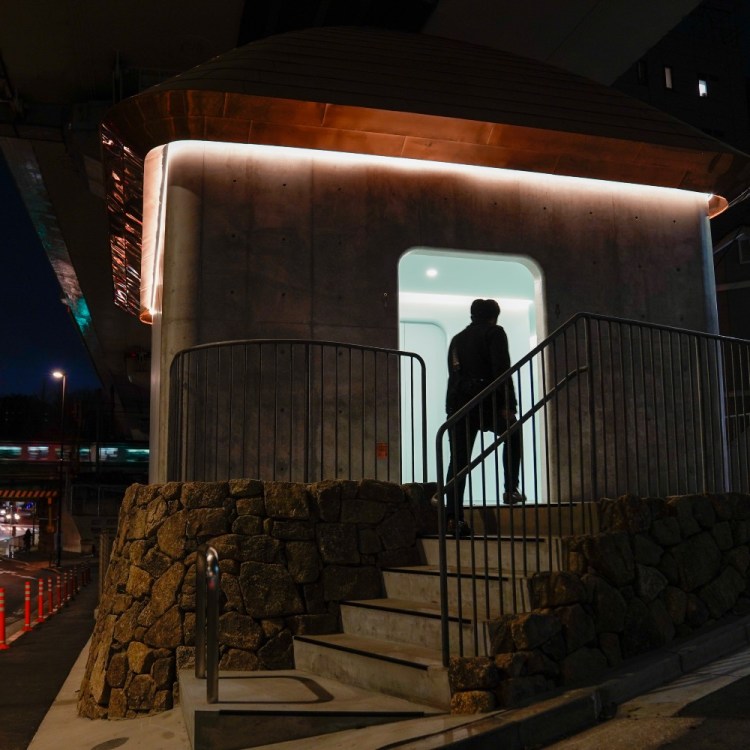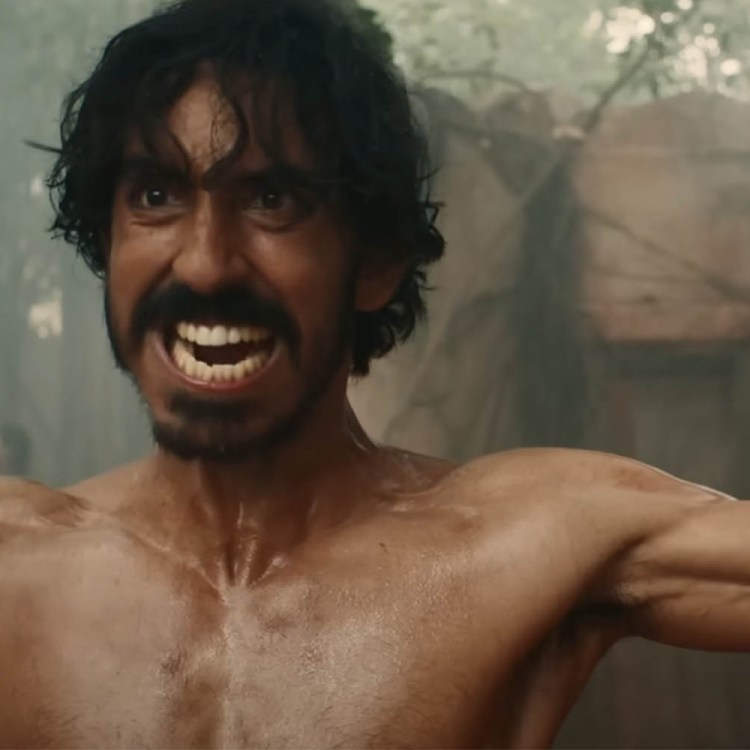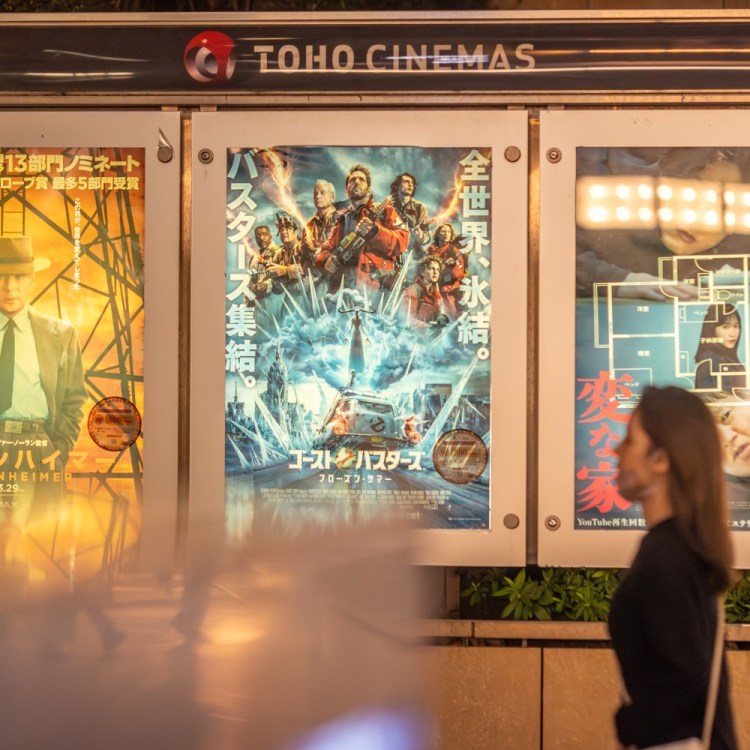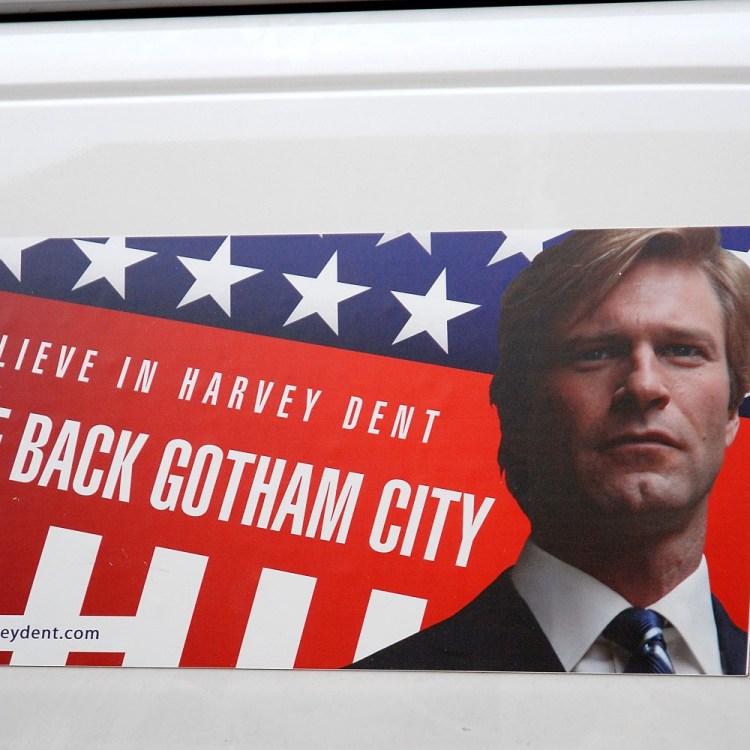Like the earliest generations of Americans, filmmaker Kelly Reichardt has spent most of her adult life migrating westward. Her latest and greatest film, First Cow, foregrounds its setting along the Columbia River in what was then the Oregon Territory, around the 19th-century moment after the white man had arrived but before he organized the first towns. By virtue of its place and time, it is under the most literal definition a Western, and it does concern itself with the genre’s key theme of how frontiersmen wrestle the climate into their definition of order. Reichardt’s approach takes that idea at a slant, however. She imagines an alternate history, in which cooperation and mercy can take the place of conflict and violence. In the story of a gentle cook, his unlikely friend, and their outfit selling delicious oily-cakes to weary fur trappers, she addresses the moral deficiencies of the cowboys-and-Indians paradigm while offering a kinder route forward.
“The power structure of this film was complicated,” she tells InsideHook by phone from Los Angeles. “Westerns are often told from the point of view of a heroic or antiheroic white man. I don’t even know who would swallow the myth of the all-knowing man on a horse right now. I mean, please. That feels passé.” In this respect, the tale of Cookie and King Lu arrives as a culmination to Reichardt’s uniformly superlative body of work. After spending much of her career charting the terrain of Oregon, she’s now re-mapping it in her own vision.
Born and raised in the Miami area, she set her first film, River of Grass, in the lush stripe of Floridian greenery separating the Everglades National Park from the coastline. She relocated to New York while her films continued to drift through the most fertile regions of the south. Despite her prize-winning showing at the Sundance Film Festival in 1994, she had trouble securing funding for a follow-up feature — a mix of the adversity that comes with being an artist of particular taste mixed with old-fashioned industry sexism, you know the drill — and produced a few shorts. Her camera left Florida behind and made its way to Mississippi for the 48-minute Ode in 1999, a loose adaptation of the novel that loosely adapted Bobbie Gentry’s hit country song “Ode to Billie Joe.”
One of her closest collaborators during these early years was Todd Haynes, who met her while she was working as prop master, key dresser and whatever else needed doing on the set of Poison in 1989. He connected her to Oregon, and in doing so, indirectly determined the course of the rest of her career. “It was so unlike Florida, a different landscape,” she recalls. “I’m used to it now, but it was nothing like what I’d known in Florida or New York. It was like another country. Maybe another world.”
Through Haynes, she met the writer John Raymond, who would adapt his own short story into the screenplay for her next feature Old Joy in 2006. In classically Reichardtian fashion, it is a simple and quiet film, following a pair of male companions with a strained yet intimate relationship on a camping trip through the Cascade Mountain region just outside Portland. The region set the scene for her next three pictures: first came Wendy and Lucy, a neorealist drama about a homeless woman searching for her lost dog, then Meek’s Cutoff, which followed a pioneer party along the Trail in 1845, and finally Night Moves, a conflicted peek at ecoterrorist activity in the state. 2016’s Certain Women took to Montana, albeit for a triptych of the same brand of rural malaise and striving. While Reichardt herself remained in New York as a professor at Bard, her creative output settled in the Pacific Northwest.
Of course the stunning vistas were a major part of what drew her attention, but for First Cow, Reichardt had to train herself to keep her affection for them at an arm’s length. “Beauty can overtake something,” she says. “These are films about struggle, people trying to make their way, and you can’t be relieving the tension with wide shots of wonder looking out over the landscape. That’s part of why I shot in 4:3, the Academy ratio. I wanted the exact opposite of the wide expanses we associate with Westerns. The economy of these films is small. I don’t want to the landscape to overwhelm or let the viewer off the hook. If there’s any beauty, it has to be earned. It can’t be for the sake of showing a beautiful sunset just because it’s comforting.”
Reining in the panoramas of John Ford was just one facet of a grander revisionist spirit that she extended to the film’s overall ethic. As the phrase goes, the West is somewhere that had to be won; she refuses to define the space in such blunt oppositional terms. The low-tech chef Cookie (John Magaro) first appears foraging for mushrooms along the forest floor, more gatherer than hunter and more lover than fighter. He wants to do clean and decent work, whipping up warming balls of fried dough and selling them for a fair price. To really get that reminds-you-of-home flavor, Cookie needs milk, which he and Chinese immigrant King Lu (Orion Lee) siphon nightly from the udders of the British noble Chief Factor’s cow. The first in Oregon, he considers her an essential public amenity, and Cookie’s tender treatment shows a respect absent from her imperialist owner. “Cookie is a craftsperson,” Reichardt says. “He’s earthbound. He has an instinct to care. The thing is, he wields no power.”
Cookie qualifies as what screenwriting books warn against as a “passive character,” allowing things to happen to him rather than taking decisive action himself. But that passivity is really pacifism, the source of his backbone. “I wanted an emphasis on the strength of vulnerability, of being human, of relating to people unlike yourself,” Reichardt declares. “The complexity of the lives of, say, Lily Gladstone as the Chinook wife to the Chief Factor. He’s like a CEO who goes to another continent and immediately starts using up the natural resources. He thinks of her as part of the land that he can claim. For her, the complications of how to survive in that world while straddling the divide separating it from her own world, that’s part of the Western.”
About that scene, the most relevant in any discussion of the “complicated power structures” that Reichardt previously mentioned: Cookie and King Lu have been summoned to the Chief Factor’s house to prepare an elaborate French dessert called a clafoutis, and he invites them into his sitting room to present the confection. The Chief Factor asks Cookie’s proper name, he identifies himself as Figowitz, and the reveal draws a frosty response. “So,” Reichardt poses, “how do we get the power dynamics across without laying it all out in the dialogue?” The silence contains volumes of tension and resentment, as a Chinese émigré, a nomadic Jew, a British colonist, his native wife, their brown-skinned servant brought in from the islands, and the local Chinook chieftain all consider how they fit into the emerging new order. For Reichardt, this is the true work of a modern Western, shifting focus from how the alpha males elbowed their way in to how everyone else found a home of their own.
“It’s funny,” Reichardt reflects, “when I made Meek’s Cutoff, I really felt the weight of the Western on me. I was working with bonnets, oxen, wagons, the whole thing. I felt like every time I set up my camera, I had to constantly ask myself the question, ‘Am I in the footprint of the Western, or am I skewing that?’ You have to keep mindful of what you’re doing. The visual language of the genre is so strong. I didn’t really feel hampered by that on First Cow, though. I thought of it like a heist movie, a bit like a caper. You still have the elements of the First Nations people, the scenery, early seeds of capitalism versus nature. But these ideas never boxed me in. It was all much freer than that.”
Oregon has that effect on people, of feeling freed. For the travelers that moved there during the 1800s, the West was a chance at reinvention, of starting over and reshaping one’s life through pure self-determination. Reichardt saw a similar potential, except that she had no interest in reforming herself. She came untethered not from her past but from America’s, unencumbered by national myths unless she’s upending our assumptions about them. She’s affectionate yet disillusioned, a far cry from the woman-of-the-woods image that her films might convey. She spends a lot of time in the Hudson Valley in her capacity as Bard faculty, and draws influence from flora and fauna photographers Robert Adams and Stephen Shore. “But I’m not as outdoorsy as one might think!” she laughs.
As a New Yorker, she spent the better part of 30 years ensorcelled by the opposite coast’s symbolic significance, its untold promise and hardship and independence and tangled inequalities. With First Cow, she hits the apotheosis of this lifelong artistic cartography. In planting her own flag on the Western genre, Oregon’s cultural heritage, and its legacy as a cinematic location, her metaphorical journey across the country has been completed.
The literal one has, too. Kelly Reichardt now lives in Portland, Oregon.
This article was featured in the InsideHook newsletter. Sign up now.
